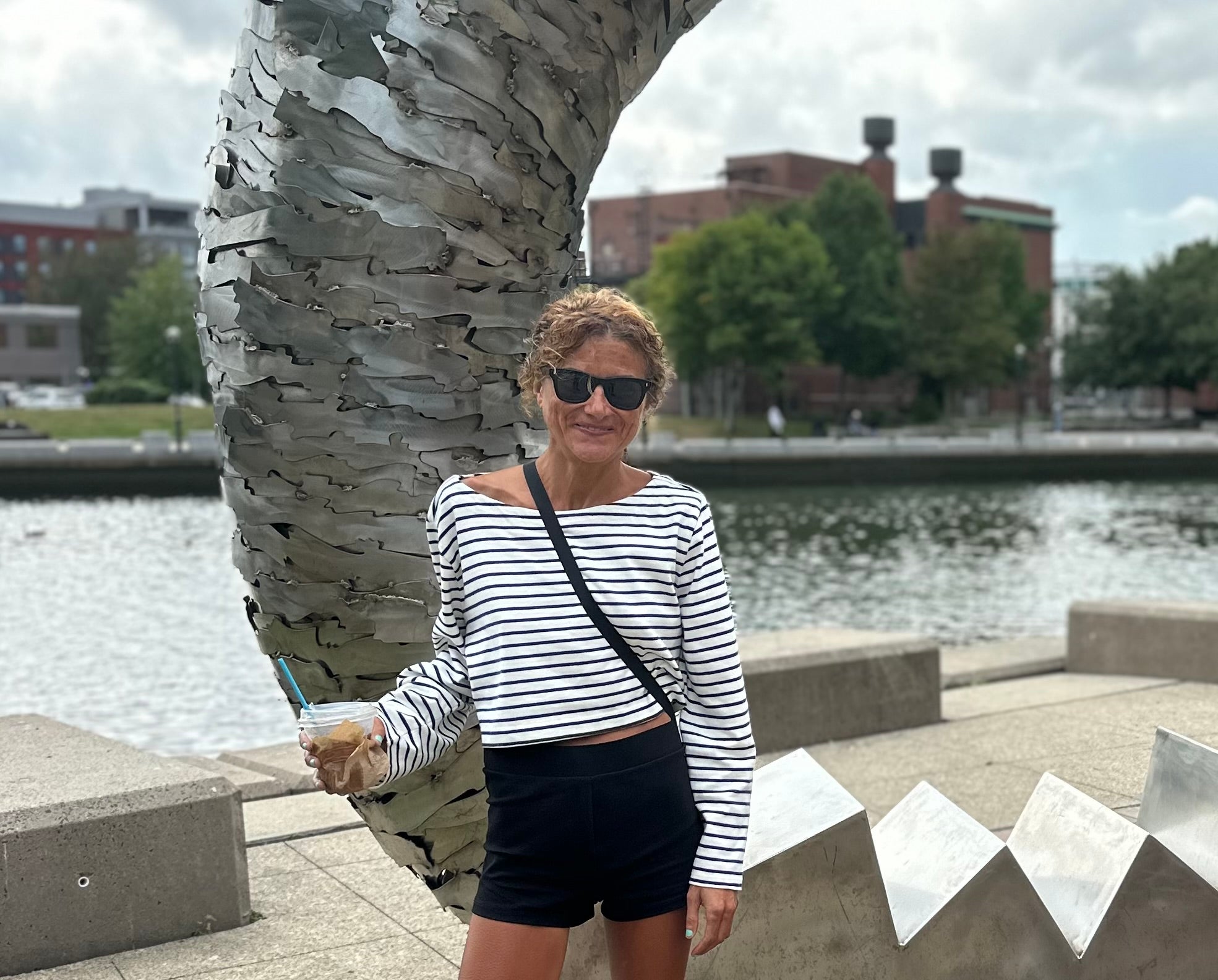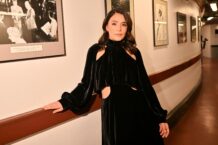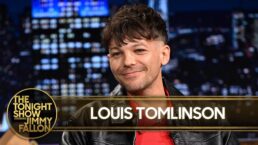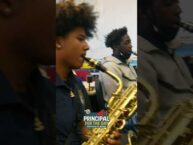No products in the cart.
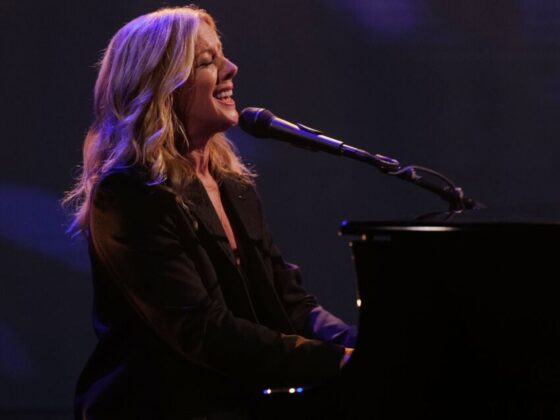
‘Time to be loud in my own way’: Sarah McLachlan on Boston audiences, Jimmy Kimmel, and her first album in 11 years
Sarah McLachlan’s 10th studio album, “Better Broken,” released in September.
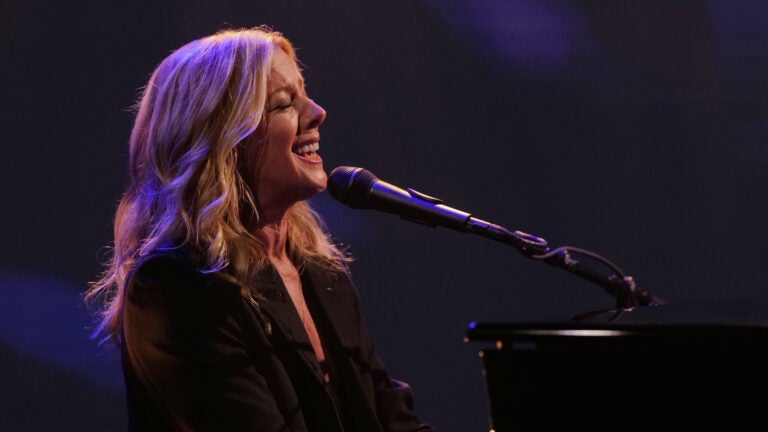
Sitting in what appears to be a woven wicker swinging chair, completely surrounded by plants, Sarah McLachlan is telling me about her first album in more than a decade.
“I’d been writing the whole time, but 11 years creeped up on me,” McLachlan, 57, says in a Zoom call from her West Vancouver home.
“The longer you’re out of the game, the harder it is to get back into it. Especially knowing the work it takes — the promotional stuff, leaving home, leaving all the creature comforts. At this age, you’re kind of like, ‘I really want to be home,’” she says with a laugh.
Advertisement:
But as Bob Dylan says in “Last Thoughts on Woody Guthrie,” McLachlan got that ol’ poet’s feeling. Something on yer mind you wanna be saying/That somebody someplace oughta be hearin’.
So, the three-time Grammy winner left the coziness of home and hit the studio for what she thought would be her last-ever record. The overall experience reinvigorated her so much, she changed her mind about that.
“This is not the time to be quiet and complacent,” the Lilith Fair founder tells me. “This is the time to be loud in my own way.”
Advertisement:
Her 10th studio album, “Better Broken,” released in September. That same month, Ally Pankiw’s documentary “Lilith Fair: Building A Mystery” hit Hulu, and McLachlan was Jimmy Kimmel’s first guest when “Jimmy Kimmel Live!” returned after its suspension.
[embedded content]
From “Gravity” — a gut-punch of a personal song that may strike a chord with Gen Xers raising teenagers — to “One in a Long Line”— a women’s rights anthem that gets straight to the point — expect to be moved at Boston’s Orpheum Nov. 20. (Let’s hope she wears her Tatum jersey again.)
In a recent Zoom, McLachlan was down-to-earth, laughed often, and spoke candidly as we discussed mother-daughter relationships, the “Lilith Fair” doc, Jimmy Kimmel, returning to the studio, the “unexpected win” of earning a “middle-aged hetero guy” fanbase — and her love of intelligent, hard-partying Bostonians. (That’s us, baby.)
Boston.com: So you told me you’d been writing for 11 years between albums. You’ve got some strong message songs here. “One in a Long Line” is powerful. What sparked that?
Advertisement:
McLachlan: The sh** show that’s going on right now. [laughs] It started with Roe v. Wade being overturned. Of course, [issues aren’t] just in America. It’s all over the world — women’s rights, human rights, gay, trans rights — everything’s being upended. What we would’ve called civilized society feels like it’s been upended.
It left me angered, frustrated. Songwriting is a cathartic outlet for me. That’s how I process my emotions, frustrations, anger— all the stuff I don’t know what to do with. Music has always helped me with that.
Certainly is way more on the nose than you’re used to hearing from me [“You don’t get to decide/The way I live/ who I lie with/ what I forgive”] — as is “Rise,” for that matter. But it was like, “I’ve got to say something about this. I have a platform.” As a woman, as a mother of daughters, I have a godson who’s trans– this is not the time to be quiet and complacent.
Speaking of your daughters, you had a candid statement in your press kit about the song “Gravity.” [She writes: “For a long time my daughter and I had a very combative and fraught relationship…so much of what I perceived as obstinance or rage was actually masking a ton of anxiety on her part. We went to counseling together, and I learned that she felt so alone and unvalidated by me—which was devastating to hear, but it led us both to change the way we communicate.”]
Advertisement:
You know, it’s not an easy time to be a teenager. My daughter was a native of social media. Not to say that’s the only thing to blame, but she’s also the daughter of a famous parent, and as much as I thought I created a normal environment for them, she grew up in this shadow. I didn’t understand that until we went to counseling. She said, “Mom, I’m in constant competition with you, and I’ll never match up.”
Wow.
I’m like, [clutches chest] It was really painful, but it was also incredibly eye-opening for me to understand that the way in which I was communicating with her was not working. I wasn’t there for her in a way that she needed me to be. As devastating as that was for me to hear, it was also an opportunity to grow and shift and figure out a better way. Counseling was life-saving for us.
That’s really important to hear because that’s a situation with a lot of parents and teenagers.
Oh, it’s so pedestrian. Mothers and first-born daughters? And add on the famous-parent thing.
What does the title “Better Broken” mean to you?
There’s a real resilience in the title, and the album itself. I’m almost 58 and I don’t think any of us get to this place unscathed. Many of us experienced the death of parents, death of friends. We’ve gone through the loss of the dream, getting divorced, having to manage all that stuff. And you know— they’re all first-world problems. There are no bombs being dropped in my street.
Advertisement:
But, we have to pick ourselves back up and find a way to move forward. It’s like that Japanese art of a broken pot— you piece it back together with gold, and it’s even more beautiful and stronger. We have to pick ourselves up and brush ourselves off and figure out how to stitch ourselves back together and keep moving.
That’s beautiful. I also want to ask about the recent Lilith Fair documentary. What was that like for you to see for the first time at the Toronto Film Fest?
Ohhh, to sit in an audience and see it on the big screen for the first time—I was blown away. Personally, how lucky am I? I get beautiful documentation of three of the most important years of my life. The way they put it together is just so beautiful and empowering.
[embedded content]
What sparked it? Someone came to you?
White Horse Pictures approached us about seven years ago, and said, “This is a story that needs to be told.” We had a couple conversations; I watched some music documentaries they did, and said, “Let’s do this.” It was kind of as simple as that.
It feels like a timely moment for this documentary, given everything we were just talking about.
It’s hopeful. It’s a really important reminder that when people come together to try and create positive change in the world — things happen. There’s strength in numbers. We were pushing against an old system that was broken and wasn’t working and just felt so wrong. To push against that and have movement and change the conversation was really powerful.
Advertisement:
I interviewed Paula Cole, who’s from Rockport, and she told me how life-changing that time was for her.
It was for all of us! It’s funny, because we didn’t think it was a movement back then. We were just in the middle of it. In hindsight, it created a lot of seismic shifts that continue to reverberate today.
Are the Lilith Fair fans a core part of your fanbase now?
I’d think so. It’s funny — those women got married. Now I’ll do meet-and-greets, and it’s often couples, men and women, and lots of gay couples, as well. But it’s funny that the hetero couples— the woman will push her husband forward and say, “He’s the real fan.” And it’s actually really heartening, because all these middle-aged hetero guys start crying in front of me, saying the music has opened them up. I’m like, Oh, hell, what an unexpected win.
That’s awesome. Another unexpected thing — you were Jimmy Kimmel’s first musical guest when he returned after the suspension.
That was fortuitous. I’d been booked on that show for months, so the fact that I got to be on the first day back with him, that felt good.
How did that work? You were booked, and they told you the show’s not airing?
Yeah. We all found out at the same time. There were obviously lots of people taking a stand for Jimmy, so the Lilith documentary [which aired on Hulu] — we were talking about canceling it in solidarity.
Advertisement:
But — and this may sound self-serving — it wasn’t so much for me [that we didn’t cancel] it’s for all the people who worked for six years in the film. It felt like we were cutting ourselves off at the knees. It was an important message to get out there. And it was fantastic to be on the first show back with him.
This record seems to end on a sad note, with that last song, “If This Is the End.”
If this is the end.
[laughs] OK.
[laughs] That song is depressing and jubilant all at the same time. Like, “Well, we really f—ed this up, didn’t we?” I’m one of the most optimistic people on the planet, so I take that song with a bit of tongue-in-cheek. I’m not terribly serious. There are moments when I think we’re all going to hell in a handbasket — then I think, “No, this is the best time in the history of the universe to be alive.”
Statistically speaking, abject poverty is way down. Quality of living, relatively speaking, is up. Yes, there are a lot of bad things going on. But we’re also hearing about all of it all the time. This s—’s been going on since the beginning of time. It’s just, we’re hearing about it en masse. It’s overwhelming, psychologically. I’m not saying that makes it any better. But it’s trying to keep perspective and continue to create change where you can.
Advertisement:
Right. And you’ll be here in Boston soon. Any favorite Boston memories or connections?
One of my best friend’s daughters is at Boston University; she’ll be coming to the show which is really cool. I have friends in Boston. Some of my fondest early shows were in Boston. I remember Boston being beautifully intelligent music fans — respectful, super into it — when I was getting beer cans thrown at me at other places. [laughs]
[Laughs] Any favorite venues?
No, I mean, this was 38 years ago. I mostly remember the parties after.
Interview has been edited and condensed. Lauren Daley is a longtime freelance culture writer. She can be reached at [email protected]. She tweets @laurendaley1, and Instagrams at @laurendaley1. Read more stories on Facebook here.
Sign up for the Today newsletter
Get everything you need to know to start your day, delivered right to your inbox every morning.

